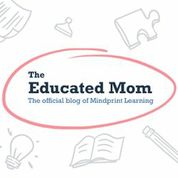
By Sarah Maraniss Vander Schaaff
Concussions in Youth Sports
When President Obama held a summit at the White House to address youth concussions, the focus was clearly on injuries incurred while participating in sports. Much of the flak following has related to one sticking point: yes, there’s going to be more money put into research and education, but is anybody going to make it less likely that kids get concussions in the first place by changing the rules of the games?
Until then, parents have a few choices. Either don’t let their kids play or insist on changing the culture. “That says you suck it up,” as the President said.
But what about when the injury doesn’t happen on the sports field? What do you do when something happens at recess?
Concussions in Children at School
Today, we share the first in a two-part interview with a mother whose nine-year-old daughter, Charlotte, got a concussion playing with a friend on a swing set at school. This is no NFL star or high school soccer player. It’s a story about a third grader who temporarily lost the ability to attend school, read, and see clearly. Only now, after months of work, is she able to resume a semblance of normal activity.
Taking the situation seriously, and being strategic about recovery, has been a defining part of Charlotte’s progress.
Interview with Charlotte’s mother:
Can you tell me what happened the day Charlotte got injured?
Charlotte was twisting her friend on the swing at recess (something that was not allowed on the playground, but that’s another story…) When Charlotte released her, the friend spun out of control. Charlotte didn’t back away far enough and was knocked down, head-first, into the metal pole.
The school nurse had Charlotte lie down for 15 minutes and then dismissed her to class. She told her to come back in one hour, or earlier, if she still felt bad. Charlotte was initially dizzy and her head hurt. She had a huge bump on the side of her head. After about a half-hour, she came back to see the nurse because her head hurt and she was still dizzy. Then the nurse called me, and I came to get her immediately and took her to her pediatrician.
When did you realize she had a concussion?
I had no experience with concussions in children, so at first I was very skeptical that it really was a concussion. I expected that it would be no big deal and she would be back to school the next day.
Her pediatrician said that if she wakes up with a headache or dizziness to keep her home. The accident happened on a Monday. If she was not better by Thursday, he wanted to see her again. She had a headache on Tuesday but on Wednesday, she said she felt fine and wanted to go to school. As a mom, it is difficult to solely rely on a 9-year-old’s subjective description of her symptoms. But I took her at her word and sent her to school.
However, she was in the nurse’s office for much of the morning. The school never called me to tell me she was feeling bad, so she stayed through the day because she thought she had to, and burst into tears when she got home and said she had a horrible day. That was the moment that I realized we were dealing with something much bigger than a bump on the head.
What were some of the symptoms?
Charlotte said she couldn’t go to school. Charlotte became better at accurately detailing, sensations she had never experienced before.
She got an excruciating headache from a 5-minute car ride to the grocery. “It feels like my brain is going to explode out of my skull from the pressure.” She got dizzy walking down grocery aisles. The sidewalk was slanting as she walked through town and she needed me to hold her hand. She saw double almost all the time for many weeks. She couldn’t read anymore. The words were all jumbled on the page. I didn’t believe her about the reading and thought she was exaggerating, but we later learned she wasn’t. The more she explained what she was experiencing, the more and more concerned we became.
How did you figure out what you needed to do next?
I really had no idea, but luckily I had a friend who has a 6th grader in the district who suffered a concussion back in January. She told me to write the Director of Special Education. The director was so helpful and responsive. She told me that Charlotte was eligible for home instruction and a 504 plan for when she does attend school.
Next week part II: How she got better. Click to read part II.
Top Photo: President Barack Obama, with introducer Tori Bellucci, delivers opening remarks at the White House Healthy Kids & Safe Sports Concussion Summit in the East Room of the White House, May 29, 2014. Belluci suffered multiple concussions as a youth and high school athlete. (Official White House Photo by Pete Souza)
If you are interested in testing your child’s cognitive functioning at home, try our cognitive screener.
Forward to a friend, follow us on Twitter or Facebook or Subscribe on email.
We’re happy to have you with us.


Pingback: Concussions: A Parent’s Education part II, Healing | The Educated Mom
Pingback: Peter Smith